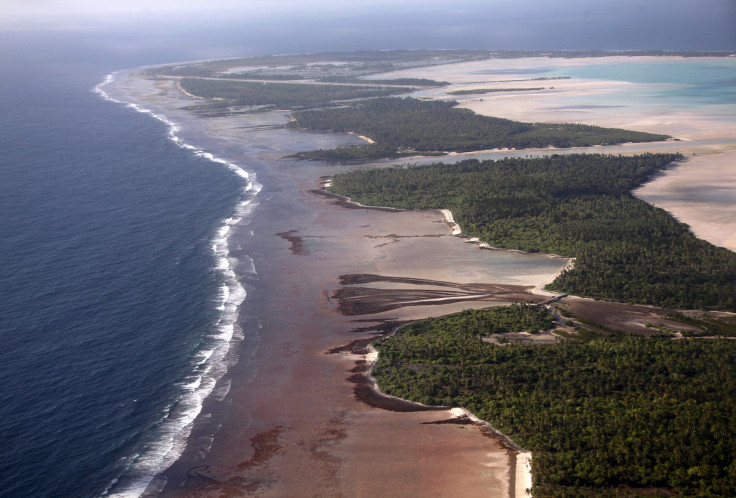New Zealand Man Says He Is A Victim Of Climate Change, Fighting To Stay In The Country
A man is fighting to stay in New Zealand after moving there from the Pacific island nation of Kiribati. The 37-year-old man claims, due to climate change, the rising sea levels have made the island uninhabitable.

The Associated Press is calling the unidentified man --- New Zealand law protects his identity from being revealed -- a “climate refugee.” He left Kiribati six years ago for New Zealand and its higher altitude. Kiribati has been predicted to be among the first casualties of climate change as the highest point in the nation, a series of atolls and islands, is just 2 meters, around 6 feet, above sea level, notes the New Zealand Herald. Rising sea levels could lead to massive flooding, rendering the nation uninhabitable in the coming decades.
Immigration officials have rejected his previous requests to stay in the country, and the man has filed a lawsuit to stay in New Zealand. Michael Kidd, a human rights lawyer, will fight for the man to stay in the country, and the outcome of the case could have an international impact as other low-lying nations, such as Kiribati and Tuvalu, located between Australia and Hawaii, face the possibility of mass migration as a result of climate change.
The former resident of Kiribati says that since 1998 rising tides have killed crops and caused flooding, and since his village has no sewer system, the rising water has polluted the drinking water, which has led to higher rates of illness among the residents, according to the court documents obtained by the AP.
According to the man, who has a wife and three children, he cannot return to his village as it would put the lives of his family at risk, reports AP. According to last week’s climate change report, released by the Intergovernmental Panel on Climate Change, IPCC, rising sea levels by the end of the century would practically submerge most of Kiribati.
While many experts believe the man will lose his appeal, the case could lead to more attention on climate change’s effect on residents in low-lying islands, notes AP. The case could lead to some discussion on what constitutes a refugee, aiding in the migration attempts of millions of people.
© Copyright IBTimes 2024. All rights reserved.












